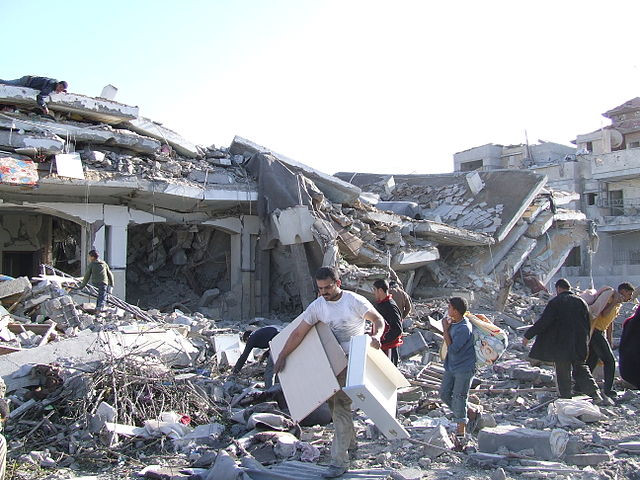Israel's Security Cabinet has approved the immediate resumption of humanitarian aid deliveries to the Gaza Strip through existing channels, Israeli officials confirmed Sunday, marking a shift in policy following nearly three months of blockade. The decision, prompted by increasing international pressure and urgent warnings of famine, comes as Israeli ground and air operations intensify across the territory, resulting in over 3,000 deaths since the end of the last ceasefire.
The Cabinet's move follows sustained advocacy by the Gaza Humanitarian Foundation (GHF), which announced that Israel had agreed to a temporary return to the old aid mechanism while a new system-designed to prevent diversion of aid to Hamas-is finalized. Jake Wood, executive director of GHF, said in a statement, "Today's announcement marks an important interim step. We expect GHF's new aid mechanism - including the establishment of four initial Secure Distribution Sites - to be up and running before the end of the month."
Wood thanked the Trump administration for its role in pressuring Israel to resume aid. "Through the GHF, we are building a secure, transparent system to deliver aid directly and effectively - without diversion or delay and in strict adherence to the humanitarian principles of humanity, neutrality, impartiality, and independence."
The aid deliveries will include food, medicine, and supplies for hospitals and bakeries, and will be routed through organizations such as the UN World Food Programme, World Central Kitchen, and other partners. According to an Israeli official, representatives from the IDF and the Coordinator of Government Activities in the Territories (COGAT) informed the Cabinet that stocks held by international organizations were depleted, necessitating urgent resupply.
The Israeli Prime Minister's Office said the decision was driven by "operational need to enable the expansion of the high-intensity fighting to defeat Hamas," warning that a humanitarian crisis would jeopardize the success of Operation Gideon's Chariots. "Israel will allow the entry of a basic amount of food for the population in order to prevent the development of a famine crisis in the Gaza Strip," the statement said, adding that measures would be taken to ensure Hamas does not divert aid for militant use.
Despite opposition from far-right ministers Itamar Ben Gvir and Bezalel Smotrich, the Cabinet did not conduct a formal vote on the measure. The new GHF aid mechanism, which involves American contractors and international monitoring, is expected to be operational by May 24.
The policy reversal came as Israel launched its most extensive ground operation since March. The IDF said it struck over 670 targets in the past week, killing dozens of militants. In parallel, hospitals in Gaza reported at least 103 civilian deaths, including dozens of women and children, in the last 24 hours. The Indonesian Hospital in northern Gaza ceased operations after suffering direct strikes, according to director Dr. Marwan al-Sultan, who reported that 30 patients and 15 staff were trapped inside.
The Gaza Health Ministry said airstrikes in Khan Younis killed at least 48 people, including 18 children and 13 women. In Jabaliya, a strike killed nine members of a family, while another attack killed ten people, including seven children.
Israel's military said it was targeting Hamas infrastructure embedded in civilian areas. Lt. Gen. Eyal Zamir, Israel's chief of staff, said the operation aims to "dissect" the Gaza Strip and maintain pressure on Hamas leadership. Talks for a ceasefire have resumed in Qatar, with Prime Minister Benjamin Netanyahu's office stating it is working "to realize every chance for a deal," including one involving the release of 58 remaining hostages.
The conflict, which began on October 7, 2023, when Hamas militants killed 1,200 Israelis and abducted 251, has since left more than 53,000 Palestinians dead, according to the Gaza Health Ministry. That toll does not distinguish between civilians and combatants and cannot be independently verified. Israel claims to have killed at least 20,000 Hamas fighters in Gaza since the war began.






